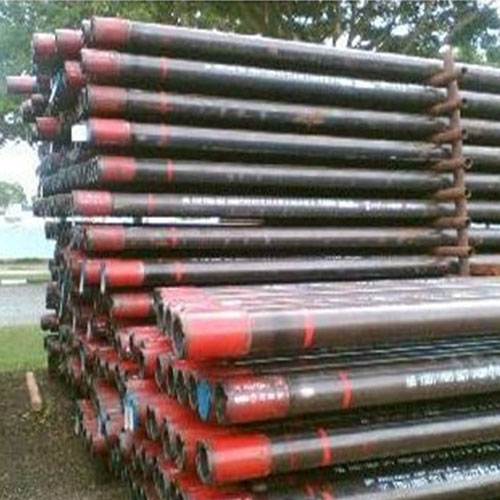Table of Contents
Benefits of Using PVC Bore Well Casing Pipe for Drinking Water
PVC bore well casing pipes are an essential component in ensuring the Safety and quality of drinking water. These pipes are made from polyvinyl chloride (PVC), a durable and versatile material that is widely used in various industries, including water supply and distribution. PVC bore well casing pipes offer numerous benefits that make them the preferred choice for protecting underground water sources and delivering clean drinking water to households and communities.
One of the key advantages of using PVC bore well casing pipes is their resistance to corrosion. Unlike metal pipes, which can rust and deteriorate over time, PVC pipes are immune to corrosion, ensuring that the water remains uncontaminated as it travels from the source to the tap. This corrosion resistance also extends the lifespan of the pipes, reducing the need for frequent replacements and maintenance, which can be costly and disruptive.
In addition to their corrosion resistance, PVC bore well casing pipes are also highly durable and strong. They can withstand high pressure and external forces, making them ideal for use in deep bore wells where the water is extracted from underground aquifers. The strength of PVC pipes ensures that they can withstand the weight of the soil and rocks above them, as well as the pressure exerted by the water as it is pumped to the surface.
Furthermore, PVC bore well casing pipes are lightweight and easy to install, making them a cost-effective option for water supply projects. Their smooth surface allows for efficient water flow, reducing friction and energy consumption during pumping. This not only saves on operational costs but also helps to conserve energy and reduce the carbon footprint of water supply systems.
Another benefit of using PVC bore well casing pipes is their versatility. They can be easily customized to fit the specific requirements of each project, whether it is a small domestic bore well or a large-scale water supply network. PVC pipes come in a range of sizes and lengths, allowing for flexibility in design and installation. This versatility makes PVC bore well casing pipes suitable for a wide range of applications, from rural water supply projects to urban infrastructure development.
Moreover, PVC bore well casing pipes are resistant to Chemicals and contaminants, ensuring that the water remains safe and clean as it passes through the pipes. This is particularly important for drinking water applications, where the quality of the water is paramount. PVC pipes do not leach harmful substances into the water, ensuring that it meets the required standards for human consumption.
In conclusion, PVC bore well casing pipes offer a range of benefits that make them the ideal choice for protecting underground water sources and delivering clean drinking water to communities. Their corrosion resistance, durability, strength, and versatility make them a cost-effective and reliable option for water supply projects of all sizes. By choosing PVC bore well casing pipes, water authorities and communities can ensure the safety and quality of their drinking water supply for years to come.
Installation Tips for PVC Bore Well Casing Pipe for Drinking Water
When it comes to installing a PVC bore well casing pipe for drinking water, there are several important factors to consider. PVC pipes are a popular choice for bore well casing due to their durability, corrosion resistance, and affordability. However, proper installation is crucial to ensure the safety and quality of the drinking water supply.
Before beginning the installation process, it is important to carefully plan out the placement of the bore well casing pipe. The pipe should be located in an area that is easily accessible for maintenance and repair, and away from any potential sources of contamination. It is also important to check with local regulations and guidelines to ensure compliance with any specific requirements for bore well casing installation.
Once the location has been determined, the next step is to prepare the bore well casing pipe for installation. This includes cutting the pipe to the appropriate length, as well as ensuring that the ends are clean and free of any debris. It is also important to inspect the pipe for any defects or damage before proceeding with installation.
When installing the PVC bore well casing pipe, it is important to use proper techniques to ensure a secure and watertight seal. This includes using the appropriate fittings and Connectors, as well as applying a suitable sealant to prevent leaks. It is also important to ensure that the pipe is properly supported and anchored to prevent shifting or movement.
During the installation process, it is important to take precautions to prevent any contamination of the drinking water supply. This includes using clean tools and equipment, as well as avoiding contact with any potential sources of contamination. It is also important to flush the pipe thoroughly before connecting it to the drinking water supply to remove any debris or contaminants.
After the PVC bore well casing pipe has been installed, it is important to regularly inspect and maintain the pipe to ensure its continued performance and safety. This includes checking for any signs of damage or wear, as well as monitoring the water quality to ensure that it meets safety standards. It is also important to address any issues or concerns promptly to prevent any potential problems from arising.

In conclusion, installing a PVC bore well casing pipe for drinking water requires careful planning and attention to detail. By following proper installation techniques and taking precautions to prevent contamination, you can ensure a safe and reliable drinking water supply for your home or property. Regular maintenance and inspection are also important to ensure the continued performance of the bore well casing pipe. By following these tips, you can enjoy clean and safe drinking water for years to come.

